Search Images
Browse Content (p. 1193)
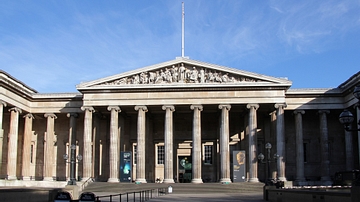
Image
British Museum
British Museum, London.
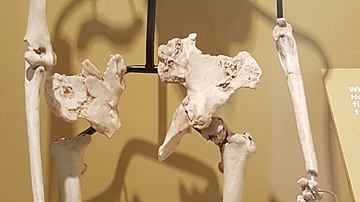
Image
Homo Floresiensis Skeleton
Cast of a Homo floresiensis skeleton - a species nicknamed ‘hobbit’ because it only stood about 1 meter tall. This extinct species of fossil human lived on the island of Flores, Indonesia and was first excavated there in 2003 CE at Liang...
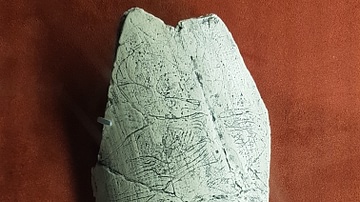
Image
Mammoth Engraving
Cast of an engraving of a woolly mammoth on mammoth ivory made by early modern humans (Homo sapiens) at the rock shelter of La Madeleine, France, between c. 17,000- c. 11,000 years ago. It resides at the Collection de Paleontologie du Museum...
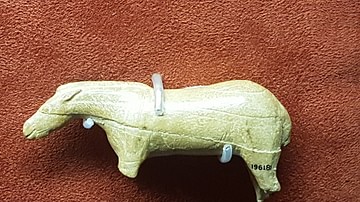
Image
Magdalenian Horse Figurine
Cast of a horse figurine carved out of mammoth ivory belonging to the Magdalenian industry of the Upper Paleolithic, which is associated with early modern humans (Homo sapiens) in southwestern France between c. 17,000 and c. 11,000 years...
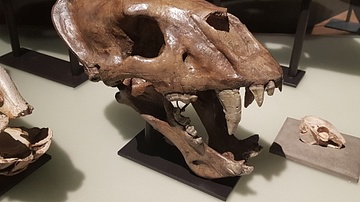
Image
Homotherium Skull
Cast of the skull of a scimitar-toothed cat (genus Homotherium) which appeared across Africa, Eurasia and the Americas during the Pliocene (c. 5 million - c. 2,6 million years ago) and the Pleistocene (c. 2,6 million- c. 12,000 years ago...

Image
Clovis Spear Points
Stone spear points belonging to the Clovis industry which is associated with early modern humans (Homo sapiens) in North America between roughly 13,500-13,000 years ago. The so-called 'Clovis point' has a distinctively fluted shape (the thin...

Image
Solutrean Spear Points
Palaeolithic spear points belonging to the Solutrean industry which flourished in what is now southwestern France between c. 21,000-c. 17,000 years ago. They were made by early modern humans (Homo sapiens). Points shaped like laurel leaves...
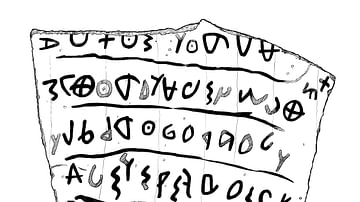
Image
Khirbet Qeiyafa Ostracon
An illustration showing the markings of an ostracon (pottery sherd) from Khirbet Qeiyafa, Israel. The sherd is cited as evidence that the Hebrew language was in use from the 10th century BCE. The text has been interpreted as a social statement...
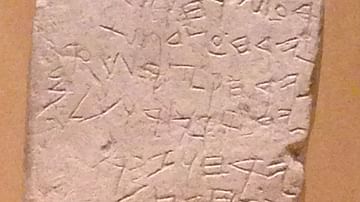
Image
Gezer Calender
The Gezer Calendar stone. The stone, possibly dating to the 10th century BCE, carries an inscription in Phoenician or Hebrew outlining a series of dates and accompanying agricultural tasks. It was discovered and deciphered by R.A.S.Macalister...
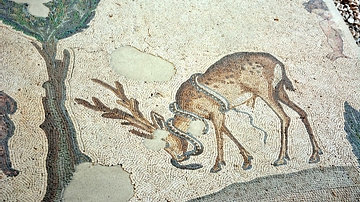
Image
Stag & Snake, Byzantine Mosaic
The stag and the snake mosaic: In some ancient texts, the stag is seen as a rival to the snake. It can also draw a snake out of its hole with its breath. The deer was a symbol of fertility and the animal of Artemis. The stag is illustrated...